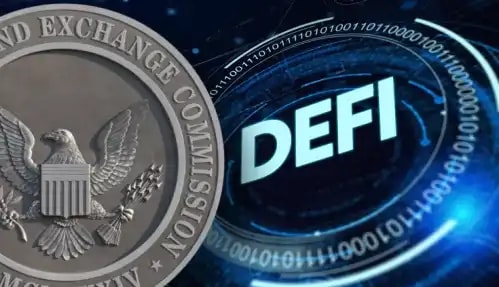s the debate continues around whether stablecoins strengthen or weaken the U.S. dollar's dominance globally, one Wall Street CEO believes they can benefit the American economy. Howard Lutnick, chairman and CEO of Cantor Fitzgerald, stated at a recent Chainalysis conference that properly backed stablecoins drive demand for U.S. Treasury notes without posing systemic risks.

Stablecoins and the Dollar
Lutnick's comments came amid an ongoing discussion regarding the dollar's role internationally. Some argue the greenback's global supremacy allows the United States to run large deficits and borrow at lower interest rates than other nations. However, others question whether innovations like stablecoins could eventually challenge the dollar's position.
As the custodian for Tether, the largest stablecoin by market cap, Lutnick's perspective carries weight. In his view, digital currencies pegged to the dollar's value like TUSD and USDC are "fundamental for the U.S. economy." Rather than undermining dollar dominance, he believes they fuel demand for Treasury notes.
Strengthening the Economy
Crypto traders widely use stablecoins for funding positions on exchanges and as collateral in derivatives markets. Lutnick pointed out that this activity directly stimulates the appetite for Treasury bonds and bills. With over $100 billion in combined market value, stablecoins represent substantial buy pressure for these dollar-backed assets.
Moreover, Lutnick stated stablecoins performed as intended during periods of financial stress, like the recent Federal Reserve tightening cycle. When risk appetite dropped, investors had a safe haven unaffected by traditional market volatility. This shows stablecoin reserves did not introduce destabilizing risks to the broader system.
By assisting in price discovery for dollar-pegged assets while remaining reliably convertible to fiat, Lutnick argued stablecoins complement - rather than compete with - the U.S. currency. Their success enhances dollar liquidity globally without weakening America's economic Stewardship role.
Views on CBDCs
However, Lutnick voiced skepticism about central bank digital currencies (CBDCs) currently being explored. He suggested nations like China may view a U.S. CBDC as an "American spy wallet" allowing excessive monitoring of citizens' activities and financial data.
This type of concern could hamper interoperability between government-backed digital currencies in the future. It also signals regulators face complex privacy, oversight, and territorial issues as they define next-generation currency frameworks.
For Lutnick, privately-backed stablecoins avoid these challenges while letting market forces - not central planning - determine currency structure. As technology improves to enable faster, cheaper tokenization of traditional assets, he believes this can further integrate crypto with traditional finance over the next decade.
.webp)









